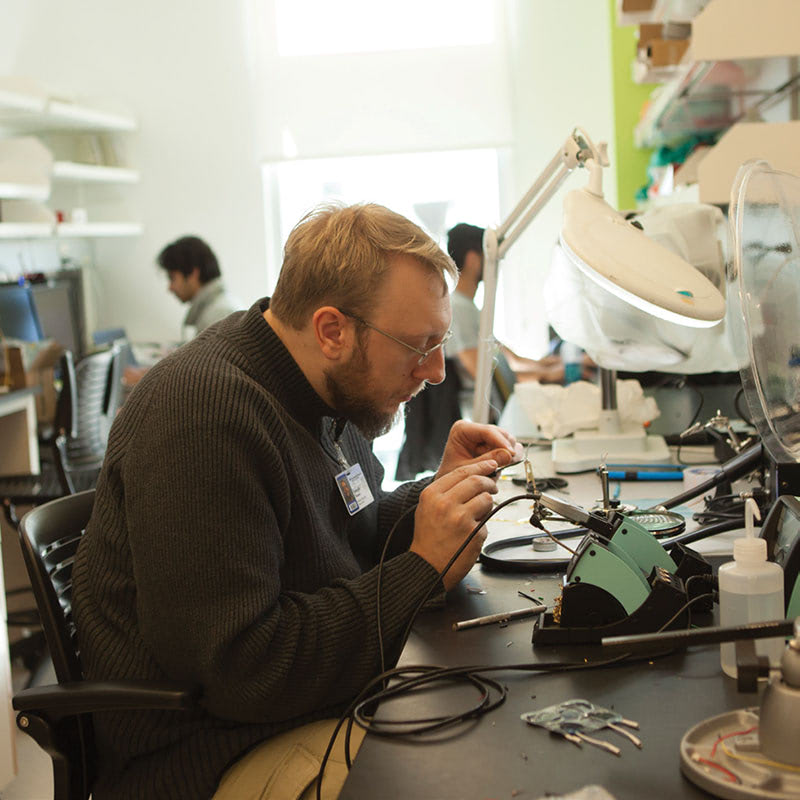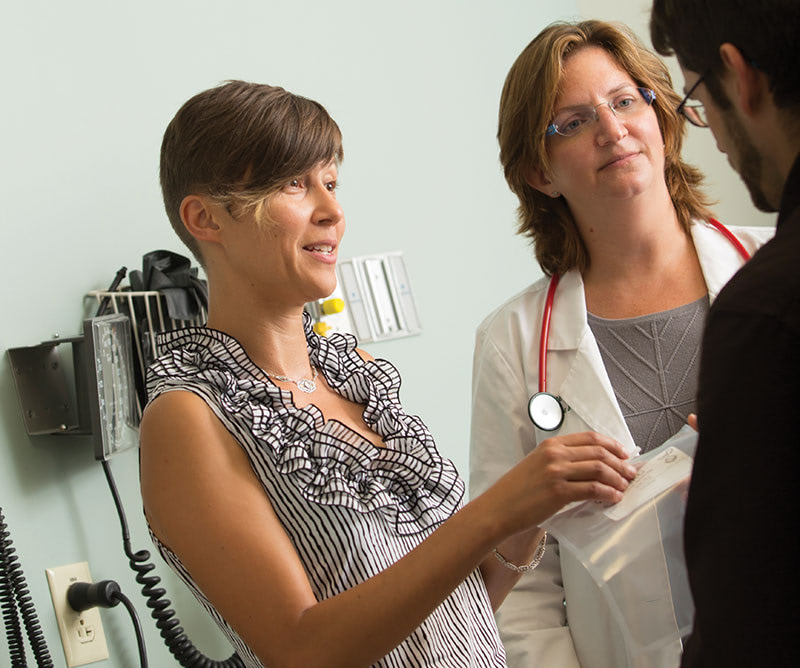- Undergraduate
Bachelor's Degrees
Bachelor of ArtsBachelor of EngineeringDual-Degree ProgramUndergraduate AdmissionsUndergraduate Experience
- Graduate
Graduate Experience
- Research
- Entrepreneurship
- Community
- About
-
Search
All Thayer News

Photo by Mark Washburn
SYNERGY Grant Funds Collaborative Breath Work
May 11, 2016 | by Jennifer Durgin | Dartmouth Medicine Magazine
A single exhaled breath contains thousands of molecules that can reveal what's happening inside a person's lungs.
"Think of it as a breath-print," explains Jane Hill, PhD, a professor at the Thayer School of Engineering at Dartmouth. She's collaborating with molecular biologists and physicians from Geisel and Dartmouth-Hitchcock to match certain biomarkers—or breath-prints—with particular bacterial infections. If successful, her approach could revolutionize the diagnosis and treatment of acute and chronic lung diseases, such as tuberculosis and the chronic infections that affect people with cystic fibrosis.
"Some patients with cystic fibrosis, especially young children, cannot produce a sputum sample for us to send to the lab for analysis," explains Alix Ashare, MD, PhD, a physician-researcher at Geisel and a pulmonologist at Dartmouth-Hitchcock. "So it can be difficult to know which drugs to give them to fight the bacteria in their lungs." Using the breath, is a non-invasive way to diagnose these bacterial infections.
"When you reach out across disciplines, you'll find a smile, intellectual interest, and this combination results in meaningful and enjoyable collaborations." —Jane Hill
Ashare and Hill are collaborating on a study funded by a pilot grant from SYNERGY: The Dartmouth Clinical and Translational Science Institute, located on the third floor of Geisel's new Williamson Translational Research Building. (SYNERGY receives funding from the National Center for Advancing Translational Sciences, part of the National Institutes of Health.)
Hill and Ashare are focusing on two of the most common bacteria affecting patients with cystic fibrosis, Pseudomonas aeruginosa, and Staphylococcus aureus. If they can figure out the breath-print for those bacteria among patients with CF, Hill's team can create a clinical test that can guide physicians to choose the right antibiotics for the right patients.

Photo by Mark Washburn
"The end goal is a point-of-care device that can collect the breath sample from the patient and rapidly generate a diagnosis," says Hill. One day she envisions patients with CF being able to monitor their lung health at home, but that goal is still several years away. First, she and her collaborators have to build a comprehensive database of breath-prints and validate the accuracy of their tests.
"Being able to make a diagnosis from a breath sample would be a huge improvement over the expensive and invasive methods we currently have to use when a patient can't produce a sputum sample," says Ashare.
In addition to Ashare, Hill works closely with Geisel microbiologist Deborah Hogan, PhD. She also collaborates with Geisel infectious disease specialists Elizabeth Talbot, MD, and Ford von Reyn, MD, to develop breath-prints for tuberculosis.
Dartmouth is rather small compared to other research universities, Hill notes, but that's what makes it special. "When you reach out across disciplines, you'll find a smile, intellectual interest, and this combination results in meaningful and enjoyable collaborations."
Link to source:
For contacts and other media information visit our Media Resources page.

